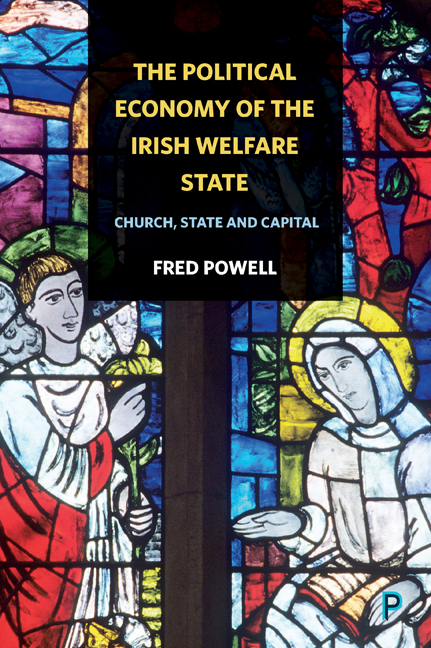Book contents
- Frontmatter
- Dedication
- Contents
- Preface
- Introduction
- one Why the welfare state matters
- two Revolution, culture and society
- three Welfare in the Free State
- four Religious nationalism, sectarianism and anti-semitism
- five The welfare state debate
- six Poverty and social inequality
- seven Liberty, gender and sexuality
- eight The marketisation of the welfare state
- nine Crisis, austerity and water
- ten Conclusion
- References
- Index
nine - Crisis, austerity and water
Published online by Cambridge University Press: 08 April 2022
- Frontmatter
- Dedication
- Contents
- Preface
- Introduction
- one Why the welfare state matters
- two Revolution, culture and society
- three Welfare in the Free State
- four Religious nationalism, sectarianism and anti-semitism
- five The welfare state debate
- six Poverty and social inequality
- seven Liberty, gender and sexuality
- eight The marketisation of the welfare state
- nine Crisis, austerity and water
- ten Conclusion
- References
- Index
Summary
By 2008 the benefits of the boom years had faded completely from view and the Republic of Ireland had moved into the greatest recession since the Great Famine.
Thomas Bartlett (2010: 552)Thomas Bartlett's analogy between the 2008 crash and the Great Famine (1845-51) is undoubtedly wildly overdrawn. The Great Famine resulted in 1 million deaths and 1 million emigrating in its immediate aftermath, with many more following in what came to be called the Irish diaspora. Ireland has yet to recover demographically from the consequences of the Great Famine. Undoubtedly, the impact of the 2008 crash on the psyche and welfare of the population was very severe. A Central Statistics Office report (2016), Measuring Ireland's progress 2014, estimated that almost half the population (49.3%) was at risk of poverty before pensions and social transfers were taken into account – the second highest rate in the EU. (The rate fell to 17.2% when transfers were included.) It is nonetheless a startling statistic, which reveals the high level of dependence on the welfare state for many citizens’ basic survival. It also highlighted Ireland's social polarisation and its dualistic welfare state that residualises poverty and promotes wealth creation.
Ireland's reputation was seriously damaged by the 2008 crash. As Bartlett (2010: 552) puts it: ‘Ireland, once bracketed with Taiwan and South Korea in terms of the strength of its economy, now found itself compared to the sick men of Europe – Portugal, Italy and Greece’. Construction and banking, which had increasingly sustained the Celtic Tiger economy after 2000, collapsed. A bailout was provided by the ‘troika’ of the European Commission/ International Monetary Fund/European Central Bank (EC/IMF/ECB) with penal financial conditions, analogous to post-war reparations. These financial conditions came to be popularly known as ‘austerity’. Ironically, it was not Irish citizens that had caused the crisis or benefited from financial speculation but private capital in the form of European and Irish banks. Yet, in an unprecedented peacetime inversion of democracy, Irish citizens were required to pay off the debts accumulated by private capital. This suggested that Polanyian ‘greed’ in the form of reckless financial speculation was a legitimate activity.
- Type
- Chapter
- Information
- The Political Economy of the Irish Welfare StateChurch, State and Capital, pp. 253 - 264Publisher: Bristol University PressPrint publication year: 2017



